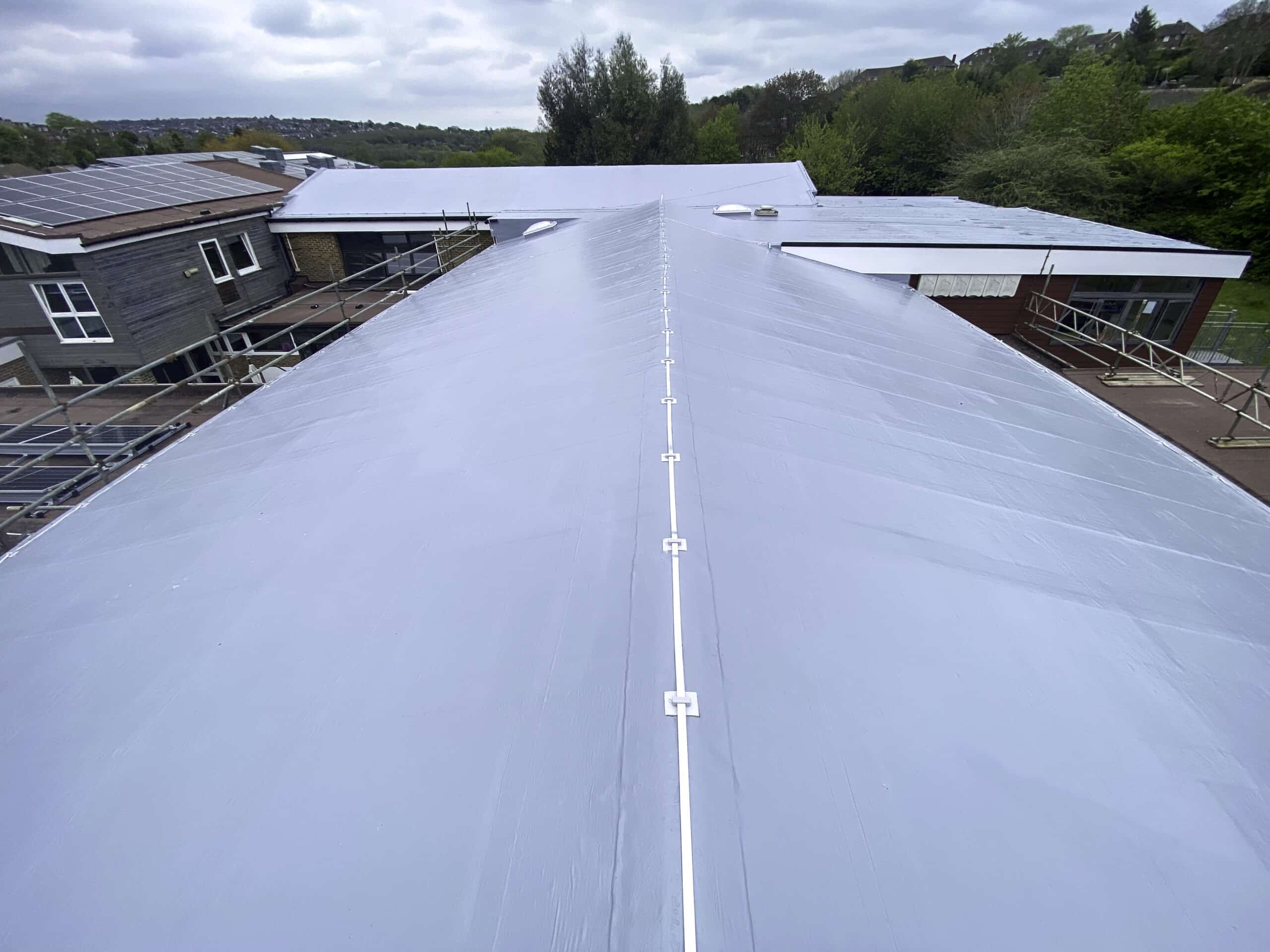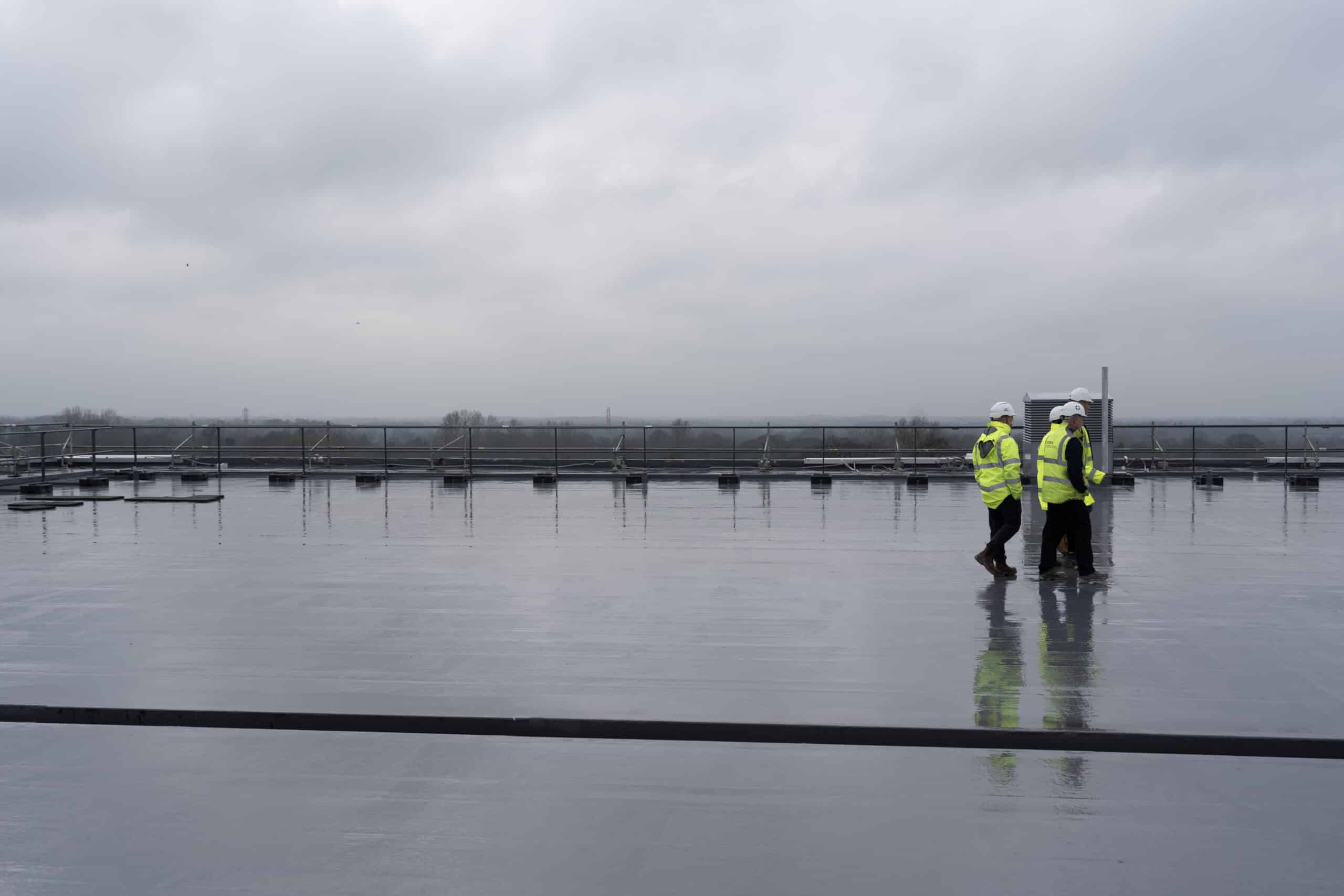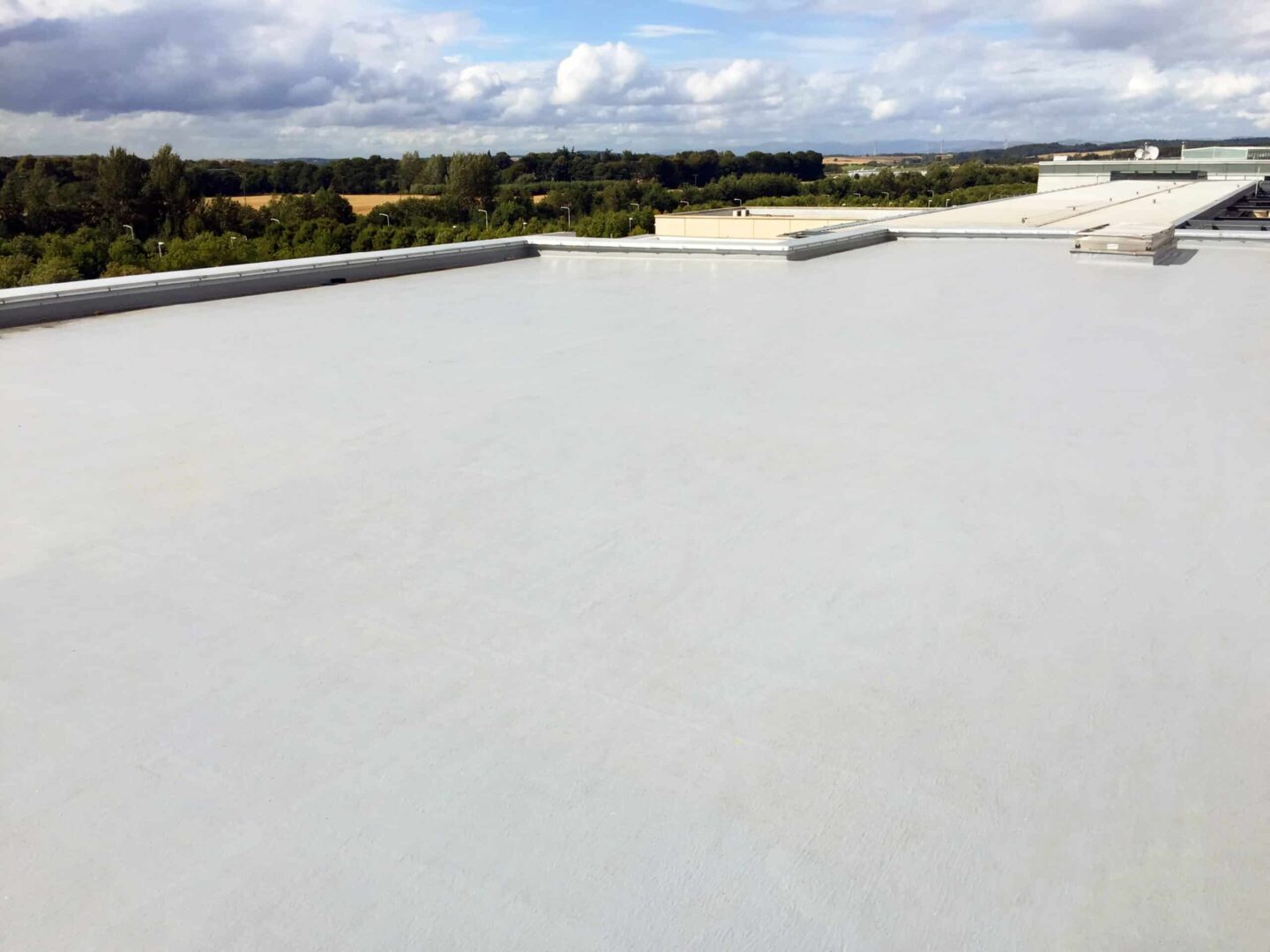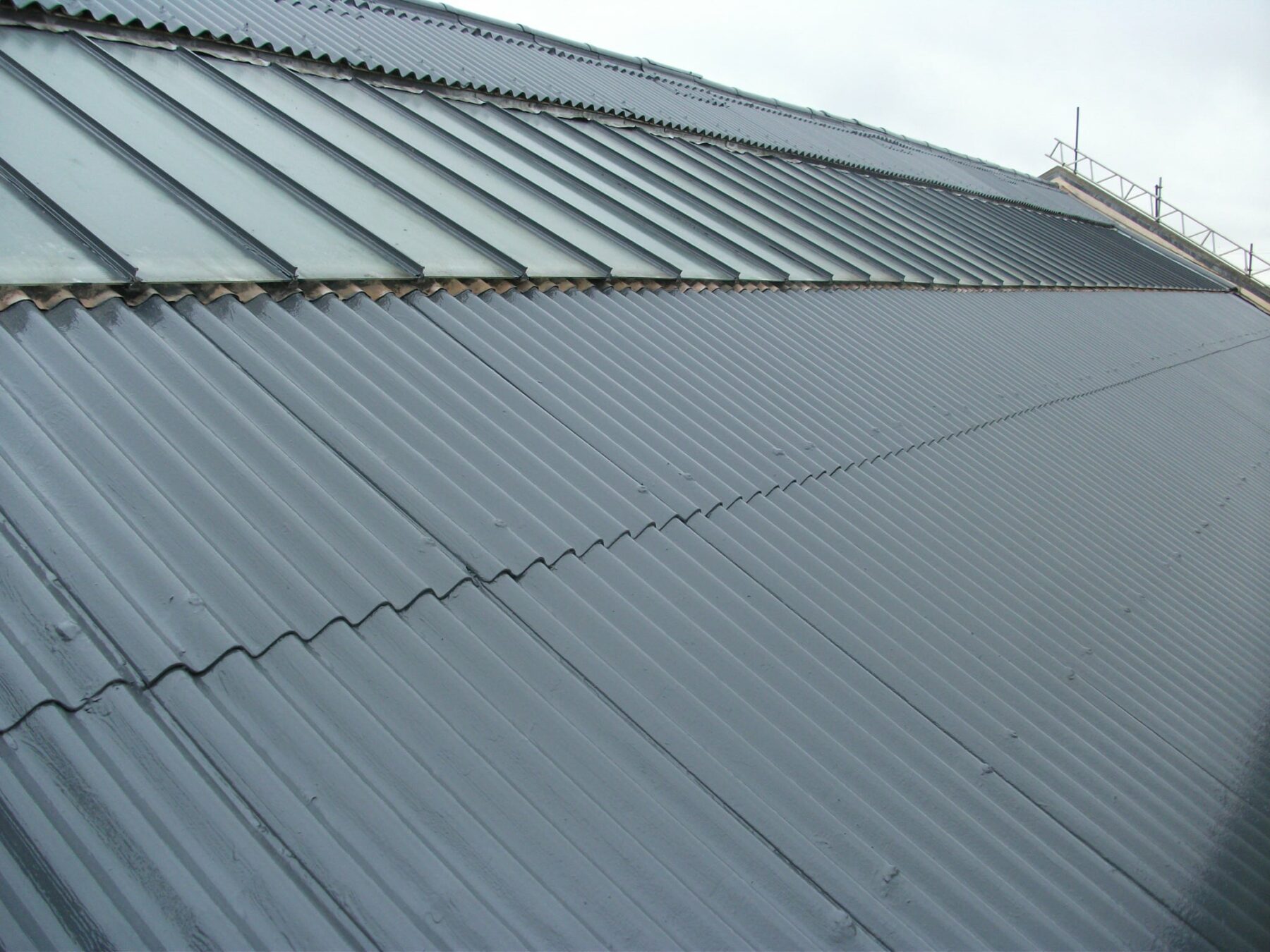Application benefits
Liquid waterproofing is an exceptionally versatile roofing solution. With the advantages we have already covered, it is a popular waterproofing solution for many applications, including low-slope flat roofs, balconies, walkways and even car parks.
Liquid waterproofing can be applied over a large variety of substrates or existing roofing systems, including:
- Mastic Asphalt
- Bituminous membranes,
- Single Ply Membranes (PVC)
- Metal Roofing
- Cement-based roof sheeting coating and encapsulation.
- Concrete/Screeds
This ability to be applied to many existing roofing systems makes liquid waterproofing especially suitable for new builds and refurbishment projects.
For roof refurbishments, it allows for repairing failures in existing waterproofing whilst enhancing its aesthetic appearance and restoring the roof, extending its life and reducing carbon emissions. White-coloured variations can also be incorporated to improve the energy efficiency of existing roofs by reflecting solar radiation and maintaining a stable, cooler temperature inside the building.
Liquid waterproofing creates a seamless, continuous barrier that is highly resistant to water, UV rays, and other external elements. This allows extremely complex details to be easily waterproofed and makes it an attractive option for commercial projects that accommodate significant plant equipment on their roof space.





